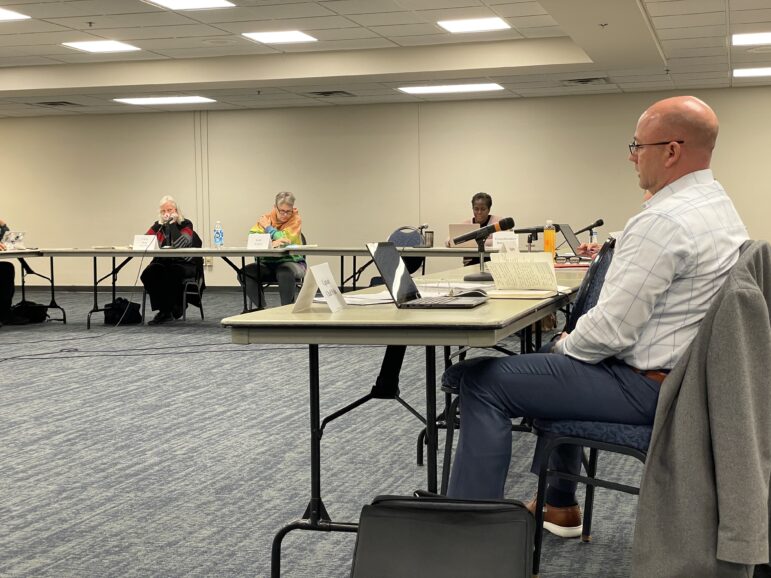EAST LANSING – East Lansing’s Independent Police Oversight Commission discussed the findings of the police department’s “Fair and Impartial Police Assessment” at the commission’s monthly meeting on Feb. 1.
The year-long assessment was conducted by the Center for Naval Analyses and released in November 2022. The assessment highlights several key findings of the department’s day-to-day culture and practices.
Much of the commission’s conversation centered around the report’s data relating to traffic enforcement and its potential racial inequities. The report concluded, “White drivers accounted for the majority of traffic stops from August 2021 to July 2022, although Black drivers were the second-most stopped individuals.”
Shawn Farzam, one of the city’s 11 police oversight commissioners, raised a conclusion on the report’s traffic data.
“Maybe our police aren’t as racist as everyone thinks,” Farzam said in the meeting.
Farzam had previously placed traffic enforcement as a priority for discussion. The assessment reported that white drivers accounted for 53.7% of traffic stops between 2021–2022, while black drivers accounted for 25.1%.
According to the report, while Black drivers were stopped slightly more than twice as much as their population distribution, which is reported as 11.5% of the East Lansing population, the difference between stops of Black drivers and non-Black drivers is “not statistically significant” when factors such as time of day and day of the week.
“Everyone has their opinions or stories, but sometimes perception becomes reality,” Farzam said. Now that East Lansing has some “hard-core data,” he continued, “we all have our perception, but here’s one piece of reality, which we actually paid for.”
Commissioner Ron Fink explained that while the report explains the scenario from a statistical perspective, the relationship between the Black community and police departments across the country cannot fully be explained by numbers.
Farzam, who has lived in East Lansing his entire life, felt it was important to break “the myths about our police force.”
Fink said he agrees with Farzam, but that police officers may still have racist ideas regardless of who they may pull over. Fink noted that he had spent some time with Black middle schoolers recently, and one of the things they reported to be most afraid of was the police. By being on the commission, Fink said, he seeks to coalesce the police with the people, allowing them to have a positive relationship with one another.
“It’s about having a police presence that is positive, and then demonstrated to be positive to the youth and the community in general,” Fink said.

Fink clapped when East Lansing Police Department Capt. Chad Pride, the department’s liaison to the commission, remarked “there is change” coming. Pride said the culture of policing has changed in his more than 20 years as an officer. When he began his career, he said, officers who weren’t on a call were expected to make traffic stops. Now, the focus is more on community policing and “getting out and engaging with the public,” calling it a “totally different mindset.” This is backed up by the data in the report, which shows that the overall number of traffic stops decreased by nearly 90% since March 2016.
The commission’s discussion of the report had been scheduled prior to the events in Memphis on Jan. 7, when five police officers assaulted Tyre Nichols during a traffic stop, leading to his death. The incident was mentioned a number of times in the meeting.
The police department had invited the commission to discuss the issues raised in the report, which the commission accepted during its Jan. 4 meeting. The commission will meet again on March 1 at the Hannah Community Center.